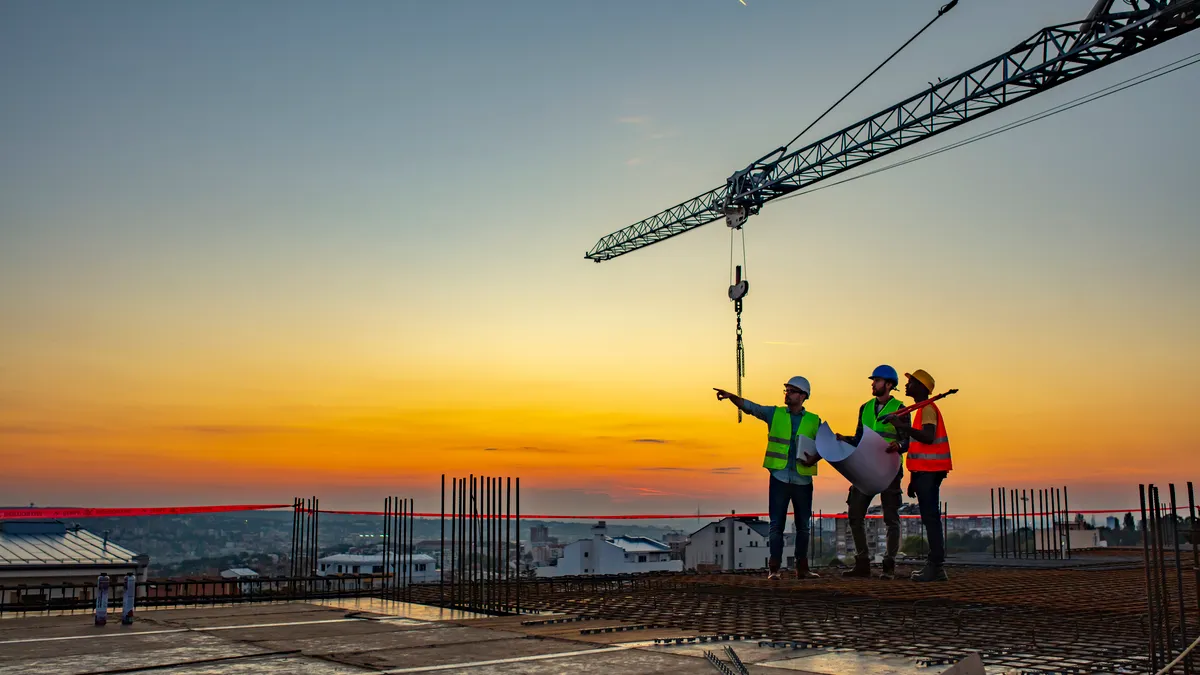Dive Brief:
- A researcher at Washington State University has received a $174,000 grant to develop a training program to improve psychological safety on construction sites so workers feel safe speaking out, especially when it comes to potential safety oversights, according to a news announcement.
- While the construction industry has focused on physical safety for more than 100 years, Hongtao Dang, an assistant professor of construction management with a Ph.D. in civil engineering, said less research has honed in on how safe workers feel psychologically on jobsites, which can have a big impact on overall safety.
- This is especially true when workers don’t feel comfortable calling out co-workers on potential safety oversights, such as not wearing proper safety gear. “I might be afraid that I will be punished or humiliated, or that someone will be angry with me, or I’ll be rejected, so I won’t share,” Dang said. “If we do root cause analysis, we can often attribute an accident to a human factor or to psychological safety.”
Dive Insight:
Construction has consistently ranked as one of the most dangerous industries for decades.
Dang will work with construction companies to gather real-world workplace data and information for case studies on psychological safety, and then will develop a set of student and instructor manuals that will eventually be used in training modules, according to the announcement.
Funding for the project comes from the State of Washington’s Department of Labor & Industries’ Safety & Health Investment Projects grant program. The grant will build on Dang’s previous work on diversity, equity and inclusion training in construction.
Before entering academia, Dang worked in the construction industry. He said that experience led him to his current focus on psychological safety, or the degree of interpersonal risk-taking workers feel comfortable with, such as speaking up with a question, a concern, an idea or even a mistake.
“I know what the job site culture looks like — how good or bad it can be,” he said. “From that experience, I think it’s important for me to be a catalyst to potentially transform the job site culture and to make it more inclusive and safer for people to work there.”
According to Dang, the presence of fear in an organization is the first sign of weak leadership and an unsafe and possibly toxic work environment.
News of the grant came on the heels of Construction Safety Week, an annual event in the industry that emphasizes the importance of protecting workers, contractors and others, physically and mentally.
Building a program
Washington State University and Dang are being joined by faculty from Oregon State University, as well as representatives from the Associated General Contractors of America’s Washington chapter.
Each training manual will include a case study based on real work scenarios, according to the announcement. The scenarios will focus on inclusion, diversity and equity; professional development and personal growth; mental health and team success; and active care and suicide prevention.
After being presented with a case study, the workers will have the chance to think about, discuss and share solutions in small groups. The trainer later helps the group understand optimal solutions.
Dang told Construction Dive that the modules are slated to be published after the project ends in November 2024.









